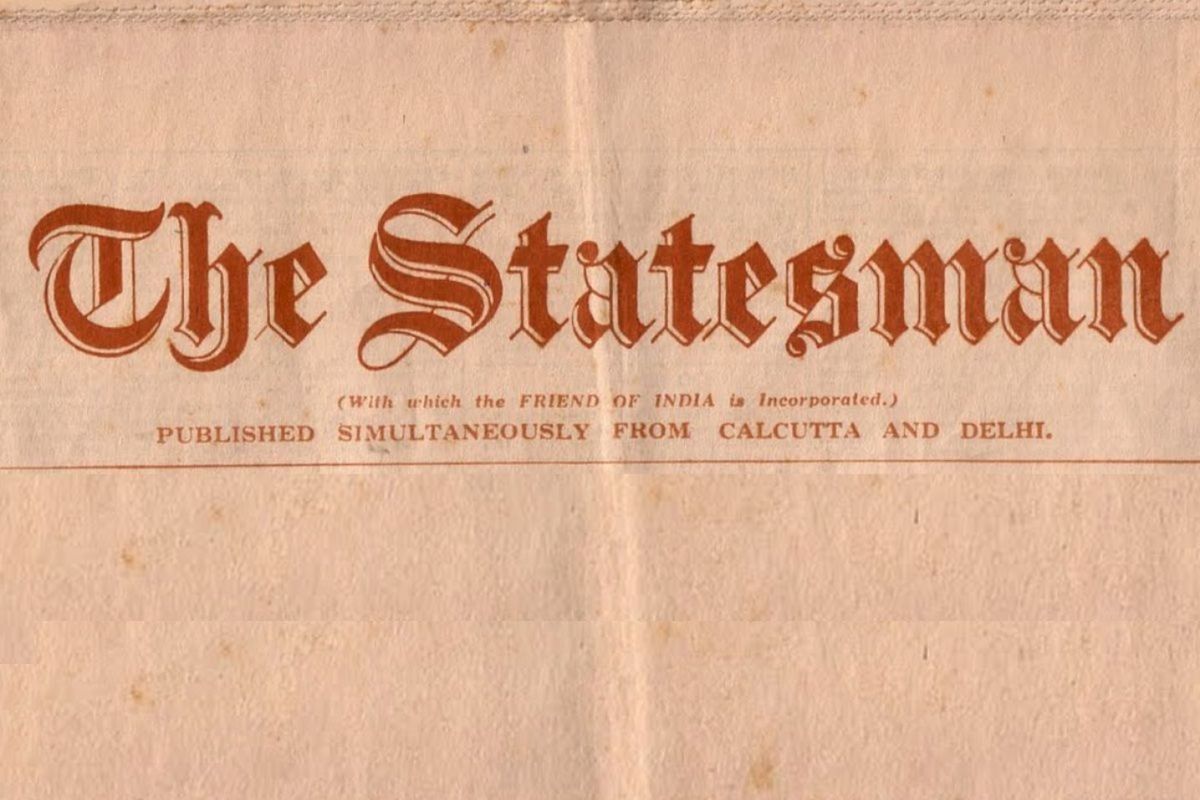Leading women personalities on what it takes to be a woman!
On International Women's Day, The Statesman talked to esteemed women personalities from various fields on what it takes to be a woman in our country and what empowers them.
On this day a century ago, these were some of the news items The Statesman readers got to read about India and the world.

OCCASIONAL NOTE
The manner in which the commercial public in India has been made aware of the operations of the India Office to relieve the strain on the silver supply affords a characteristic example of official apathy in face of an acute economic crisis. Possibly each several step, from the arrangement for the sale of Councils against gold received at the Ottawa Mint, was duly recorded in the un-informing official fashion but no effort was ever made to link the steps together and explain their very great significance to the public. The fact that gold received against sales of Councils in New York was to be shipped to India was only made known to the general public during Mr. Howard’s visit and that visit would probably never have taken place but for the pressing invitation of the Bengal Chamber of Commerce. The first clue to the mystery came with Reuter’s sensational telegram to the effect that the gold operations arranged by the Indian Government had eased their silver anxieties and contributed to a fall in the cost of silver. It is now fairly clear that the Ottawa sales of telegraphic transfer “without limit” inaugurated the process and that the gold received at the earliest of those sales was destined to form the first shipment. Had the commercial public realised that fact it might have been spared three-fourths of its anxiety during the past month, for it is clear that the ultimate implication of the process is that the United States Government will permit its nationals to pay their Indian bills by direct shipments of gold.
Advertisement
RIVER PADMA IN FLOOD
Advertisement
A portion of the compound of the District Magistrate’s bungalow has been washed away by the River Padma flooding from the Dewangunge ferry ghat up to the District Magistrate’s house. A narrow strip of land of about 100 yds in breadth alone intervenes between the River Ichamati and the Padma, which if covered will bring the two rivers in contact. In reply to the representation sent to His Excellency by the residents of Pabna the Private Secretary to His Excellency the Governor of Bengal has sent the following letter to the Chairman, Pabna Municipality: In acknowledging the representation submitted by the residents of Pabna, regarding the erosion of the River Padma, I am desired to say that His Excellency-in-Council is giving the matter his careful consideration, and the Hon. Mr. Cowley has recently visited Pabna to make enquiries regarding the position. The representation has now been forwarded to the Secretary to the Government of Bengal, Irrigation Department.
WATER INSECTS
There was a large attendance at the Indian Museum yesterday evening when Dr. F.H. Gravely, Assistant Superintendent , Zoological Survey of India, delivered an interesting lecture on water insects, which was illustrated by lantern slides and was followed with interest by the audience. Water insects, the lecturer said, resembled warm blooded animals and were essentially air breathing insects. The fact that they lived in water and breathed air indicated that they were descended from animals, just as the whale which breathed through its lungs. The most interesting portion of the lecture had reference to the life history of mosquitoes. A number of slides showed how mosquitoes came into existence, and how the larvae could not get their tails through any kerosene, which was thrown over the surface of the water and were therefore destroyed. Some larvae fed on vegetable matter floating about around them, while others were cannibals and lived on the lar vae of other mosquitoes.
INDIAN IMPERIAL POLICE
SIMLA, SEPT 5
In connection with appointments to the Indian (Imperial) Police to be made in India in 1919, all candidates other than those who are already in the Indian Police Service will be required to undergo a qualifying educational test. The applications of those who pass this test will then be dealt with by a selection committee. Examinations will be held for candidates in India at Poona, Quetta, Lucknow, Lahore, Peshawar and Calcutta on the 2nd October, 1919. Examinations will be held simultaneously for other candidates in Mesopotamia, Egypt, Aden, Palestine and East Africa. Th standard to be required has been described as follows in a notice issued by the Secretary of State in regard to candidates in England. The candidates must satisfy the Civil Service Commissioners that they have received a continuous and systematic education until at least the age of 18.
Advertisement